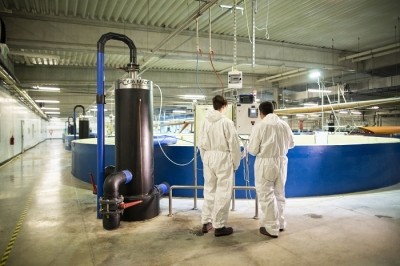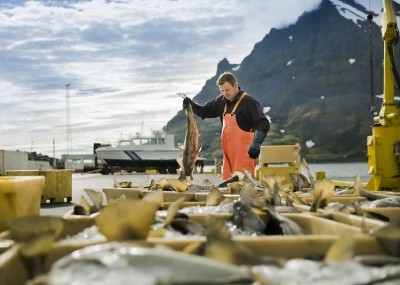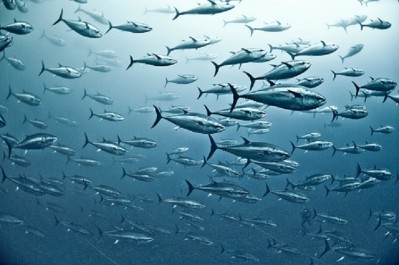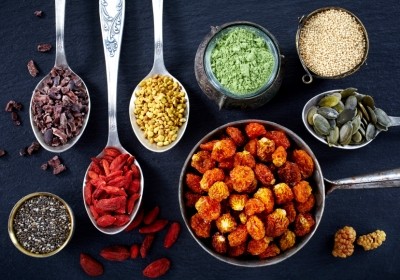‘Good taste, healthy nutrition and conscientious consumption’: How algal-fed salmon can deliver healthier fish, food and oceans
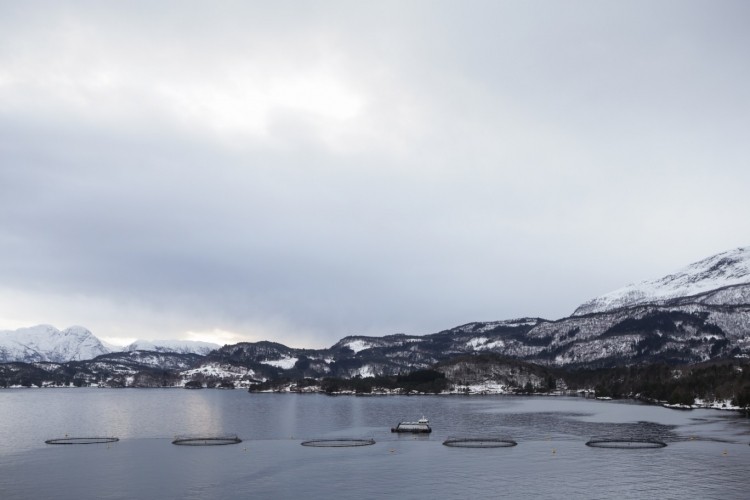
In what it describes as a “pioneering” step, the Oslo-based salmon producer is replacing fish oil in its farmed salmon production with fatty acids derived from natural marine algae. From October last year, Lingalaks started to feed about half its salmon stock a diet, produced by Skretting, including algal oil that is rich in omega-3 EPA and DHA.
Lingalaks said this boosts the sustainability of its operations and provides its products with a point of differentiation.
“Omega-3 EPA + DHA from natural marine algae allows us to produce healthier and better salmon. “It also gives us the unique opportunity to differentiate our company within a competitive market,” Lingalaks owner Erlend Haugarvoll said.
“Our courage to pioneer a new and more sustainable production method using algal oil resonated well with our philosophy. By being the early adopter of this new technology, we found partners along the seafood value chain who supported us in realizing our vision of superior, sustainable salmon quality and finding new outlets for it,” Haugarvoll noted.
Fish farming and sustainability
The innovation was fueled by collaboration along the value-chain from feed producers, farmers, retailers to NGOs, an effort initially orchestrated by Veramaris, the Dutch-based joint venture between DSM and Econik, which developed the algal oil as a novel ingredient.
The Veramaris algal oil is the only commercial non-fish source of omega-3 fatty acids that is rich in both EPA and DHA. Produced on land by fermentation of natural marine algae, the company says the algal oil is of a high purity, free from sea-born contaminants, stabilized with natural antioxidants, excluding Ethoxyquin.
Fish farming is needed to fill the gap between declining wild stocks and growing global demand. The Food and Agriculture Organisation of the United Nations (FAO) estimates that by 2030 more than 60% of seafood will be produced by the aquaculture sector. Seafood consumption is expected to rise from 19kg a year per capita to 20.6kg per capita by 2022.
The expansion of the industry needs to be managed in a sustainable way that minimizes impact on ocean life. According to Veramaris CEO Karim Kurmaly, the algal oil ingredient tackles one of the greatest sustainability challenges facing aquaculture: the fact that farmed fish are often fed wild caught species.
“As of today, the majority of the aquaculture industry depends on fish oil as an input into aquafeed, which is a finite marine ingredient, derived from small feeder fish like anchovy, sardines and sprat. Each year 16 million metric tons of fish are caught for the sole purpose of producing fish meal and fish oil—80% of this fish oil is allocated to the aquaculture industry for fish feed,” he told FoodNavigator.
“While consumer demand for healthy seafood has led to growth within the aquaculture industry of three percent a year, the global supply of fish oil derived from wild-caught fish is declining two percent a year,” Kurmaly noted.
Veramaris’ current algal oil production is equivalent to 1.2 million tons of wild caught fish and meets roughly 15% of the current annual demand for EPA and DHA by the salmon aquaculture industry.
Meeting key consumer demands: health and sustainability
Boosting the sustainability of farmed fish production is becoming increasingly important for food makers and retailers responding to the shifting consumer landscape.
German retail chain Kaufland, owned by Schwarz Group, has become the first retailer to put the new salmon on the shelf. The company is pursuing a “comprehensive” corporate responsibility strategy with seafood, and salmon in particular, representing an “integral element”.
The supermarket said it sees “great potential” in its collaboration with Lingalaks and Veramaris, which head of shopper purchasing Andreas Schopper described as a “forward-looking” decision.
“Our customers have high demands on quality and competence of the assortment. The algal oil-fed salmon is an innovative and high-quality product that lives up to our customers’ high demands for good taste and healthy nutrition, and that meets the increasing sense of responsibility for conscious consumption of resources,” Schopper said.
Alongside the sustainability message, fish fed on algal oil could also be associated with positive nutrition benefits, Kurmaly added. “Veramaris algal oil is highly concentrated in omega-3 fatty acids EPA & DHA, which positively benefits the nutritional profile of salmon and helps maintain a healthy fish. Our algal oil offers a standardized way of regulating the amount of omega-3 EPA & DHA fatty acids for salmon, and this provides assurance to consumers that they are receiving all the nutritional benefits they expect from salmon.”
In particular, the Veramaris chief continued, this can help reverse the drop in omega-3 EPA and DHA levels in farmed salmon, which he said have halved over the past decade. “The ability to reverse this decline in omega- 3 EPA and DHA, is important for both fish health and human health. We all know omega-3 EPA and DHA supports brain health and development, and reduces risks for several serious health conditions, including heart disease, cancer and arthritis.”
This message is one that has been taken up by retailers who, Kurmaly said, recognise it as their "commercial and corporate responsibility" to provide sustainable, affordable and healthy seafood.
"Retailers are conveying the Veramaris message “healthy fish, healthy food, healthy oceans” in a simplified way to end-consumers. The retailers are publicizing this message with point-of-sale communication or packaging fitting to the consumers’ needs varying from country to country."
